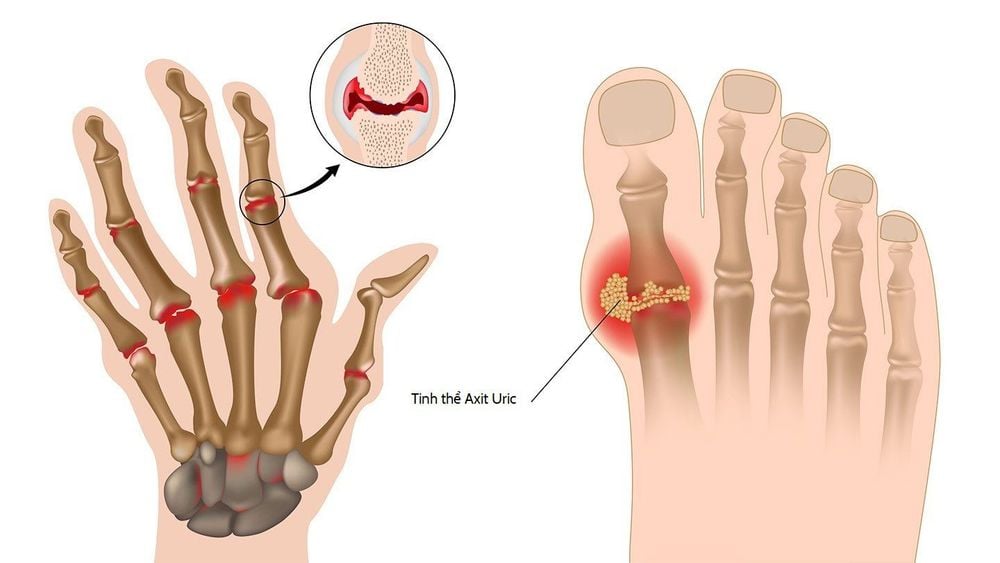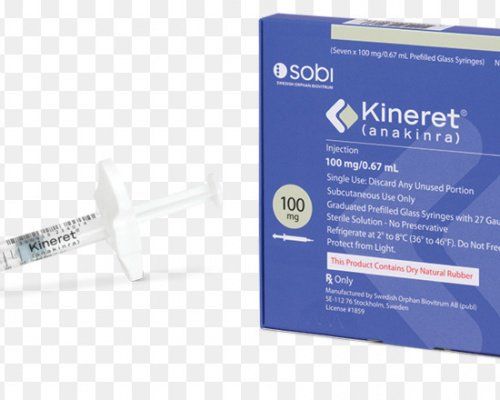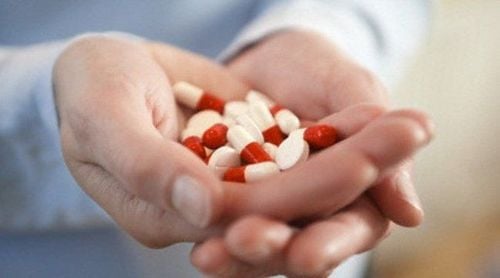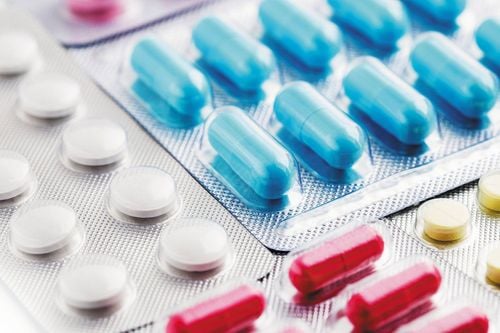This is an automatically translated article.
Autoimmune disorders and some muscle and joint conditions both cause inflammation, which steroids can help alleviate. Although steroids are produced in many different formulations, steroid injections are often the best treatment. In this article, we'll take a closer look at steroid injections, their indications, how it's done, and possible side effects.
1. What are steroids?
The type of steroid used when injected is called a corticosteroid. They are different from anabolic steroids, which are used to strengthen muscles.
Corticosteroids are man-made versions of cortisol, a hormone naturally produced by the adrenal glands, the organ located at the upper pole of the kidneys. These hormones do:
Help the body respond to stress such as injury or illness Suppress immune system activity, help reduce inflammation Steroid injections increase anti-inflammatory and immunosuppressive capabilities of body.
2. What are steroid injections used for?
Steroid injections are used for a number of different diseases and lesions. They may be used for immune-related conditions, including:
Rheumatoid arthritis Lupus Inflammatory Bowel Disease Multiple Sclerosis Allergic Steroids can also be used for joint and muscle conditions, such as: :
Osteoarthritis Gout Bursitis Tendonitis Joint pain Plantar fasciitis Sciatica

Steroid có thể được sử dụng cho bệnh Gout
3. What can you expect from steroid injections?
Before the injection, you may need to stop taking some medicines. Talk to your doctor about the medications you are taking.
Steroid injections must be done in a doctor's office or hospital. When it comes to your appointment, your doctor will conduct the procedure and ask you to sign a consent form for steroid injections. They will then ask you to lie in the correct position to allow them access to the injection site.
Your doctor can use ultrasound to find out the exact spot to give you an injection. The injectable steroid will be mixed with the anesthetic. The injection can be uncomfortable, but the anesthetic will work quickly.
Steroid injections can be done in a variety of places such as:
Joints Muscles or tendons Spinal (epidural space) Bursitis, which are fluid-filled sacs between certain tendons and joints You will need to keep the injection site is clean and dry for the next 24 hours. The injection site may be sore for several days. You can apply cold packs on the spot if needed, up to 10 minutes at a time. Wait at least 24 hours before applying heat on the injection site.
Steroids can also be given through a vein (intravenously). This method is often used for flare-ups of autoimmune diseases.
4. How fast do steroids work?
Most steroid injections take a few days to start working. In some cases, they can start working sooner, within a few hours.

Hầu hết các mũi tiêm steroid mất vài ngày để bắt đầu có tác dụng
5. How long do the effects of injectable steroids last?
Steroid injections usually last for a month or two. However, they can last longer, especially when used in combination with other treatments such as physical therapy. Steroid injections for certain conditions, such as acute joint pain, may also last longer. It's best to limit steroid injections to three or four times a year. More frequent injections can weaken the skin and bones around the injection site.
6. What are the side effects of steroid injections?
Potential side effects of steroid injections include:
Pain around the injection site, ranging from mild pain to severe pain, commonly known as a steroid or cortisol flare Bruising around the injection site, flushing for several days hours Thin or pale skin around the injection site Insomnia High blood sugar for a few days, especially in people with diabetes. Temporary increase in blood pressure, especially if you already have high blood pressure Skin indentation around the injection site due to fat loss Appetite Infection, which can be serious - call your doctor if the injection site is swollen, red and painful In In rare cases, an injection into the spine can cause a severe headache that can only be relieved by lying down. Call your doctor if you experience this side effect.
7. Who is suitable for steroid injections
Steroid injections may not be suitable for everyone. Before deciding to use the drug, it is important to inform the treating doctor if you:
Have had steroid injections in the last few months Have an allergy to steroids Have an infection Have been vaccinated recently or plan to get vaccinated Diarrhea diabetes, high blood pressure, epilepsy, or liver, kidney, or heart problems Are pregnant or breast-feeding Are taking anticoagulants Your doctor will explain the benefits and risks of not injecting steroids. can help you make a decision.
When should you not inject steroids?
Your doctor will not inject steroids if you have an infection in an inflamed area or another part of your body.
If a joint is severely damaged, injections probably won't help.
If you have bleeding problems or are taking anticoagulants (commonly known as blood thinners), steroid injections can cause bleeding.
More than three or four steroid injections per year are more likely to weaken tissues such as cartilage or bone in that area.
8. Summary
Steroid injections can be an important part of a treatment plan for many autoimmune and joint diseases. Steroids can be injected into a joint, muscle, tendon, spine, or tendon sheath. They may also be given intravenously, usually for exacerbations of autoimmune disease. When used with other treatments, such as physical therapy, they can help relieve symptoms for several months at a time. It is best not to have more than three or four steroid injections per year. After a steroid injection, if you have a severe headache or an infection at the injection site, be sure to see your doctor for a follow-up visit.
Any questions that need to be answered by a specialist doctor as well as customers wishing to be examined and treated at Vinmec International General Hospital, you can contact Vinmec Health System nationwide or register online HERE.
Please dial HOTLINE for more information or register for an appointment HERE. Download MyVinmec app to make appointments faster and to manage your bookings easily.
References: healthline.com, webmd.com













